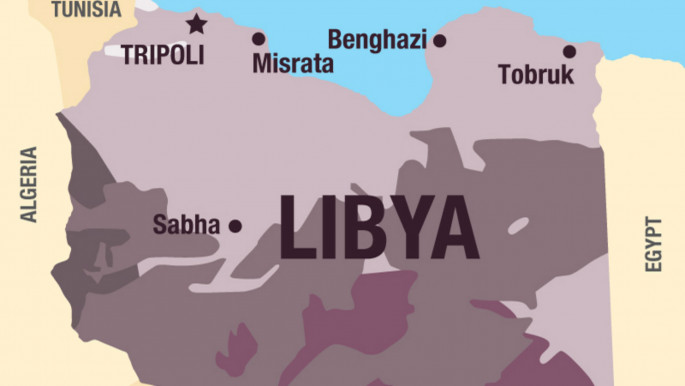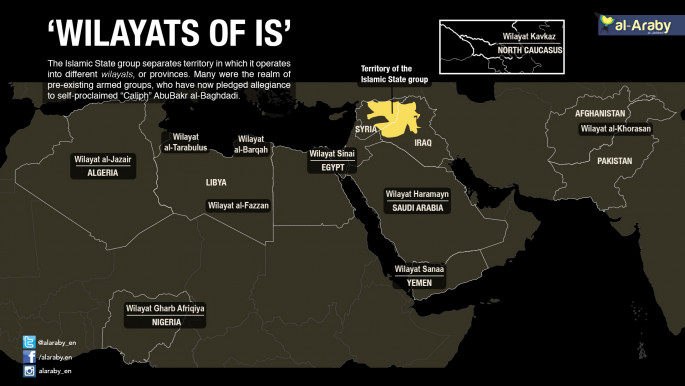IS strengthens its grip in war-torn Libya
With the world's attention is focused on the Islamic State group's strongholds in Syria and Iraq, the organisation has strengthened its grip in Libya.
Sirte lies on Libya's Mediterranean coast, and has become a magnet for new jihadi recruits and foreign fighters, as IS comes under increased pressure in Syria and Iraq.
"It is clear 'IS central' made an investment on Libya a long time ago," in a strategy dating back almost two years, said Mattia Toaldo, policy fellow at the European Council on Foreign Relations.
"Foreign fighters from North Africa are increasingly flocking to Sirte rather than going all the way to Syria."
Since the overthrow of Libyan leader Muammar Gaddafi in 2011, militias - and now two rival governments - have battled for power in the country.
 |
As a power vacuum developed, IS seized Sirte in June.
Militiamen who have been fighting them were beheaded and their bodies displayed on crucifixes.
Officials in the army loyal to the internationally recognised government in Tobruk say Sirte has become the destination of choice for new recruits.
"Sirte is now the centre... where new recruits are trained and instructed in the ideology of IS," said Mohamed Hijazi, a spokesman for the military led by General Khalifa Haftar.
"Hundreds of foreign fighters have flowed in from Tunisia, Sudan, Yemen and Nigeria, to be trained and ready to carry out attacks in other countries," said an army colonel who spoke on condition of anonymity.
A foreign ministry source said the number of IS recruits in Sirte was "several thousand" and growing, thanks to the "pressure" the extremist group are being put under in Iraq and Syria.
Another government official said the "strikes against [IS in Syria and Iraq] could force it to relocate its leaders and command centres to Libya".
'Roaming the streets'
In a report issued on Tuesday, the United Nations estimated that the number of IS fighters in Libya is between 2,000 and 3,000, including 1,500 in Sirte.
"Everything has changed in Sirte. Daesh [IS] fighters roam the streets as though at home," said a former leader in Sirte's local council.
| What's been going on in Libya? | |
|
The General National Congress was the Islamist-led elected body ruling Libya for two years following Gaddafi's ousting and death. After its 18-month deadline to form a new constitution passed in January 2014, the body resolved to extend its mandate. |
"They do checks to make sure people aren't skipping prayers and enforce Sharia law, and women are rarely seen," said the former official who fled to Misrata, located 240km west of Sirte, half-way along the coast between the IS stronghold and the Libyan capital, Tripoli.
IS strives to give the impression that life in Sirte is normal, staging events to publicise the opening of new bakeries or butcher shops - while distributing videos of punitive amputations.
"Islamic State recognises that the chaotic situation in Libya offers it the opportunity to develop its influence network," said risk analysis firm Verisk Maplecroft.
"It is likely to be able to maintain a substantial presence that supports its network across the region for as long as the civil war persists."
In Paris, French Prime Minister Manuel Valls said the situation in the conflict-riddled country will be "the big issue in the coming months", noting how "terrorism constantly mutates".
Libya summit
Former colonial power Italy is pressing for an international summit on Libya along the same lines as a recent conference in Vienna aimed at ending the nearly five-year-old war in Syria.
It has set 13 December as a tentative date for a conference in Rome aimed at preventing the total collapse of Libya and halting the advance of IS.
But for now there is no political solution in sight to end Libya's conflict, with UN-brokered talks on the formation of a national unity government failing in the autumn and yet to resume.
Meanwhile, IS is trying to expand its zone of influence to Ajdabiya, which is controlled by militias loyal to the recognised government.
It also lies between Sirte and Benghazi in an area where most of the country's oil and gas terminals are clustered.
IS is also fighting in some parts of the cities of Benghazi and Derna.
"[IS] is an evident short and long-term threat in Libya," said Tuesday's UN expert report.
"[But they face] strong resistance from the population as well as difficulties in building and maintaining local alliances."
UN experts also told Reuters that the group - seen by many Libyans as outsiders - are facing manpower shortages, which is limiting its ability to consolidate more power in the country.
 |
| [Click to enlarge] |





 Follow the Middle East's top stories in English at The New Arab on Google News
Follow the Middle East's top stories in English at The New Arab on Google News
![Israeli forces ordered bombed Gaza's Jabalia, ordering residents to leave [Getty]](/sites/default/files/styles/image_330x185/public/2176418030.jpeg?h=a5f2f23a&itok=_YGZaP1z)

